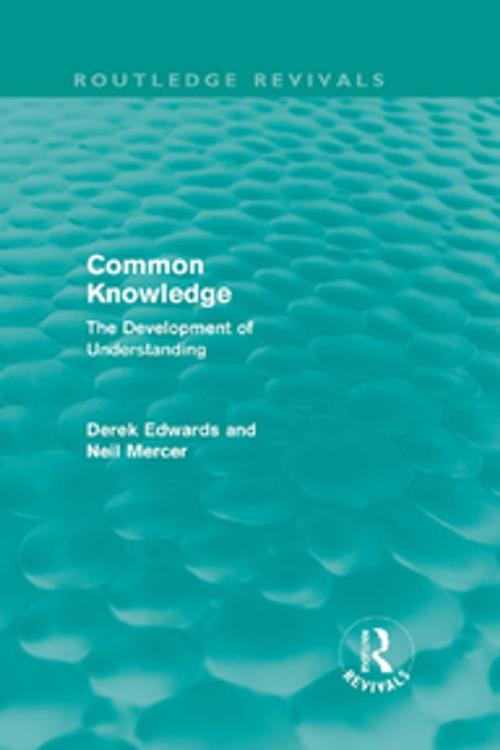Common Knowledge (Routledge Revivals)
The Development of Understanding in the Classroom
Nonfiction, Reference & Language, Education & Teaching, Elementary, Educational Theory, Educational Psychology| Author: | Derek Edwards, Neil Mercer | ISBN: | 9781136212673 |
| Publisher: | Taylor and Francis | Publication: | February 1, 2013 |
| Imprint: | Routledge | Language: | English |
| Author: | Derek Edwards, Neil Mercer |
| ISBN: | 9781136212673 |
| Publisher: | Taylor and Francis |
| Publication: | February 1, 2013 |
| Imprint: | Routledge |
| Language: | English |
First published in 1987, Common Knowledge offers a radical departure from the traditionally individualistic psychologies which have underpinned modern approaches to educational theory and practice. The authors present a study of education as the creation of ‘common knowledge’ or shared understanding between teacher and pupils. They show the presenting, receiving, sharing, controlling, negotiating, understanding and misunderstanding of knowledge in the classroom to be an intrinsically social communicative process which can be revealed only through close analysis of joint activity and classroom talk. Basing this analysis on a detailed examination of video-recorded school lessons with groups of 8 to 10-year-olds, they show how classroom communications take place against a background of implicit under-standing, some of which is never made explicit to pupils, while there develops during the lessons a context of assumed common knowledge about what has been said, done, or understood.
This wide-ranging study makes an important contribution to the current debate about both teaching methods and the structure of education. It is essential reading for educationalists and developmental psychologists and has a clear practical relevance to teachers and teacher trainers.
First published in 1987, Common Knowledge offers a radical departure from the traditionally individualistic psychologies which have underpinned modern approaches to educational theory and practice. The authors present a study of education as the creation of ‘common knowledge’ or shared understanding between teacher and pupils. They show the presenting, receiving, sharing, controlling, negotiating, understanding and misunderstanding of knowledge in the classroom to be an intrinsically social communicative process which can be revealed only through close analysis of joint activity and classroom talk. Basing this analysis on a detailed examination of video-recorded school lessons with groups of 8 to 10-year-olds, they show how classroom communications take place against a background of implicit under-standing, some of which is never made explicit to pupils, while there develops during the lessons a context of assumed common knowledge about what has been said, done, or understood.
This wide-ranging study makes an important contribution to the current debate about both teaching methods and the structure of education. It is essential reading for educationalists and developmental psychologists and has a clear practical relevance to teachers and teacher trainers.















